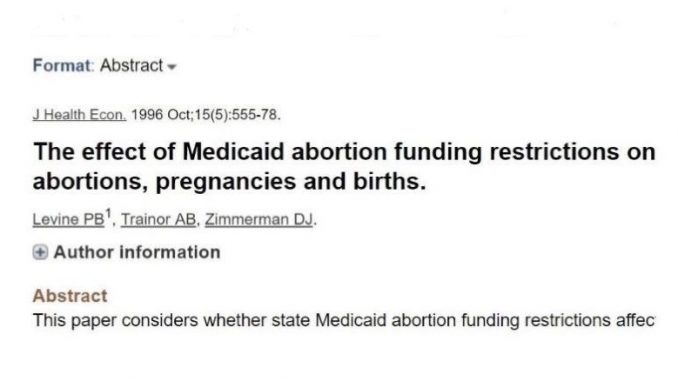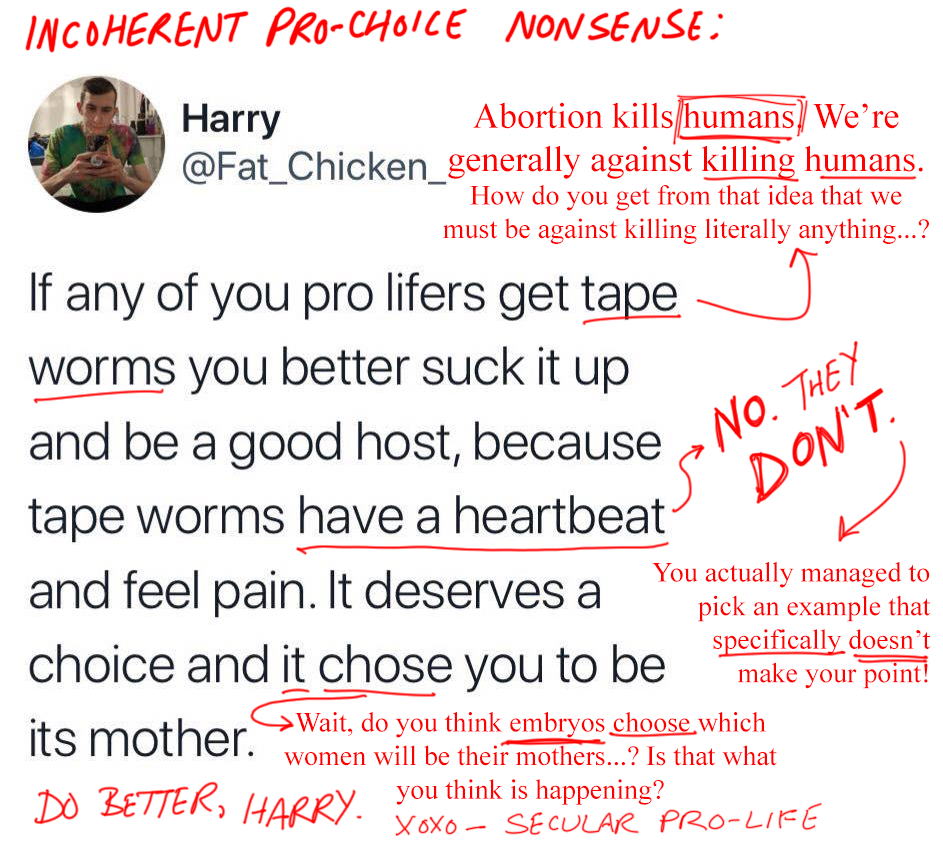
Several states recently passed bills to protect children in the womb. This has abortion advocates speaking out, and some are putting a lot of thought into their objections. Others aren’t:

One line you’ll hear is that banning abortion will mean more kids “in the system.” Now, I can think of a couple problems with this claim. The first is that telling foster children they would be better off dead seems kind of lousy. The second?
It isn’t even true.
As Secular Pro-Life has pointed out, multiple studies show that when abortion is restricted, birth control use and sexual behavior change. That leads to both fewer abortions and fewer unplanned births. For example, a 1996 study published in the Journal of Health Economics examined the effect of restricting public funding for abortion. Its conclusion?
An analysis of 12 years of state-level data indicate that restrictions are associated with a reduction in abortions and either no change or a reduction in births, implying fewer pregnancies. Subsequent analysis of the National Longitudinal Survey of Youth (NLSY) is consistent with these findings and show the response is concentrated among the low-income population.
Another 1996 study compared birth and abortion rates in Texas counties that had abortion access with those that didn't. It found "residents in counties with longer travel distances to the nearest abortion provider have lower abortion rates and lower pregnancy rates."
A similar observation was made in a study on abortion restrictions and the number of children made available for adoption. It noted how "abortion law has an unexpected negative effect. This suggests that as abortion laws become more restrictive the total number of unwanted births may decrease." An additional study found,
"Similarly, women in states characterized by high abortion hostility (i.e., states with four or more types of restrictive policies in place) were more likely to use highly effective [contraceptive] methods than were women in states with less hostility."
What's more, a 2008 study on the effects of parental notification laws determined "that the enactment of parental involvement laws significantly reduces risky sexual activity among teenage girls." However, it may not just be women who change their behavior.
RELATED NEWS: If Late-Term Abortion Isn't Torture, What Is?
For a man who wants sex without commitment, abortion is a helpful tool; after all, child support isn't cheap. That's why you can find online guides explaining how to pressure a woman into having one:
You need to channel your inner cold, unforgiving, unapologetic asshole nature, as nothing less will suffice. You must not ask, but rather tell her to get an abortion because if she refuses this child will be a bastard. Explain to her in no uncertain terms that you will not be a father to this child. I would avoid personal shots of telling her she is unfit to be a mother because this could backfire on you, but make it clear that if she keeps the baby you will be opting out of fatherhood. Explain that while she may end up collecting the minimum in child support that the state can take from you, in no way will you participate in raising this kid or being a father to it. To instill the seriousness of your message, add that you will refuse any efforts in the future to include you in the child’s life.
Without easy access to abortion, it seems plausible that such men would have a greater incentive to use condoms or be more selective in the choice of partners.
RELATED NEWS: Here Are 10 Child Rapists Planned Parenthood Helped
But what about a woman who ends up conceiving anyway? Well, if she's not able to raise her child, then there's no shortage of people who are. Those seeking to adopt outnumber available infants, with some estimates saying there are as many as 36 waiting couples for every baby.
RELATED NEWS: Can't Raise Your Baby? Plenty Of People Can
Some can be found on Adoption.com . It's a site that allows couples who have been approved by a licensed adoption agency to create a profile explaining what they have to offer. Profiles are searchable by location, religion, family size, and other criteria.
As more states move to protect innocent lives, abortion advocates will continue to grow more vocal and less truthful. Regarding Georgia's heartbeat bill, someone insisted to me that "all this is going to do is create more babies in the system, more addictions issue and massive debt!" The reality?
It's going to bring less.
What do you think? Leave a comment below.
Be the first to comment